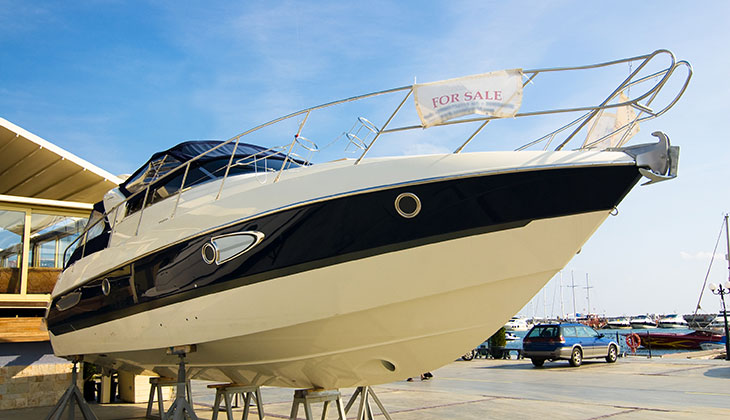It's a sad fact that today, when you're buying or selling an expensive item like a boat or a yacht, you need to be more and more careful to avoid the people who want to separate you from your money.

These con-merchants operate a variety of scams to try and deceive people and the internet has made it easier. It's not really the fault of the internet, it's just that it makes it easier to find more buyers and sellers to aim at. The more they try, the more likely they are to hit a likely target.
Of course selling off the internet doesn't automatically make you immune, just perhaps less likely to be targeted - all of the scams listed here can be tried regardless of where the boat is advertised. A cheap laptop and a scanner/printer can create all sorts of plausible-looking documentation too.
So here's our run down of the most common scams and how to avoid them but overall the golden rule never changes - if it sounds too good to be true, it probably is.
This is more prevalent with cars on Autotrader and eBay but it has been seen with boats too. The seller's ad will sometimes ask you to email them directly rather than contact you through the site and this should ring immediate alarm bells - it's to make the scammers harder to trace.
You will be told that there's a lot of interest in the boat but it's not available for viewing for some reason. You'll be told that you need to put down a small proportion of the price down to hold it and this will be refunded if, when you see the boat, it's not as described. Of course, after you've paid the deposit, all communications will mysteriously cease ......
When selling, you might be offered a cheque for more than the amount you want, asking you to refund the difference. There'll be some reason for the 'buyer' needing to do this, a lost pin number or something, but the reason is to get some of your cash, because the cheque will be stolen.
It might clear initially but then a few weeks later the money will be clawed back as the banks clearing system catches up. The same is true with bankers drafts as they can be forged more readily.
Boats and yachts are often shipped long distances and this makes them prime targets for the fake shipping scam. Your 'buyer' will suggest that you arrange and pay for the shipping and they'll add it to the amount they pay you. The 'buyer' may even put you in touch with a shipping agent to use - they of course will be in on the sting.
You'll get a cheque, money order or bankers draft but again, it won't be worth the paper it's written on. By the time you find that out your money will be gone and, if you're really unlucky, your boat too.
To be honest, there is no real reason to accept cheques these days, or carry wads of cash around. Although the internet does make it easier to effect these scams it also makes paying easier, so you can do an online bank transfer while you're with the buyer or seller and both watch the transaction go through.
Both parties should check with both their banks before committing to this method though. Not all banks or building societies will transfer money automatically to every bank or building society and some can also hold large payments up for fraud checks.
An easy online bank transfer isn't often possible if you're selling to an overseas buyer, or buying from an overseas seller. Bank transfers are possible though, and to make one safely use a reputable bank.
Comparison websites like MoneySuperMarket.com feature foreign transfer operators and it's a reasonable bet that a company on a site like that will be real and safe - but do your own research.
Avoid at all costs services like Western Union or MoneyGram. They transfer the money immediately to the recipient, without waiting to see if cheques clear or bankers drafts are genuine, so the scammers will disappear immediately.
There is a scam specific to these transfer systems when you are buying. You might be asked to prove you have the money for the boat by transferring it to someone you know, then scanning the receipt in and emailing it to the 'seller'. You'll be told that you can get your friend to transfer it back once they've seen the receipt but in fact the details on the receipt are often enough for the scammers to access that cash and take it.
Be very careful about who you're giving details about your bank accounts, credit cards or online access details. This happens more often with spoof emails or phone calls rather than with sales transactions but remember that no financial organisation or classified advertising operation will ask you for your account details or passwords - they just wouldn't.
If you suspect a scam, hang up and redial to talk to the organisation concerned - making sure the phone line is properly disconnected. Or if it's an email, don't follow the link in the email - start up your browser and navigate to the site yourself.
Scammers are getting more and more resourceful and plausible, and identity theft is on the rise too. New scams are appearing all the time so we can't warn against every single one but being careful should see you safe.
If you think you've been scammed while buying or selling a boat or yacht, get in touch with the police immediately- but lets hope it doesn't come to that.
Not signed up to our monthly newsletters and would like to keep up to date with a variety of products? Select from below which products you would like to receive.